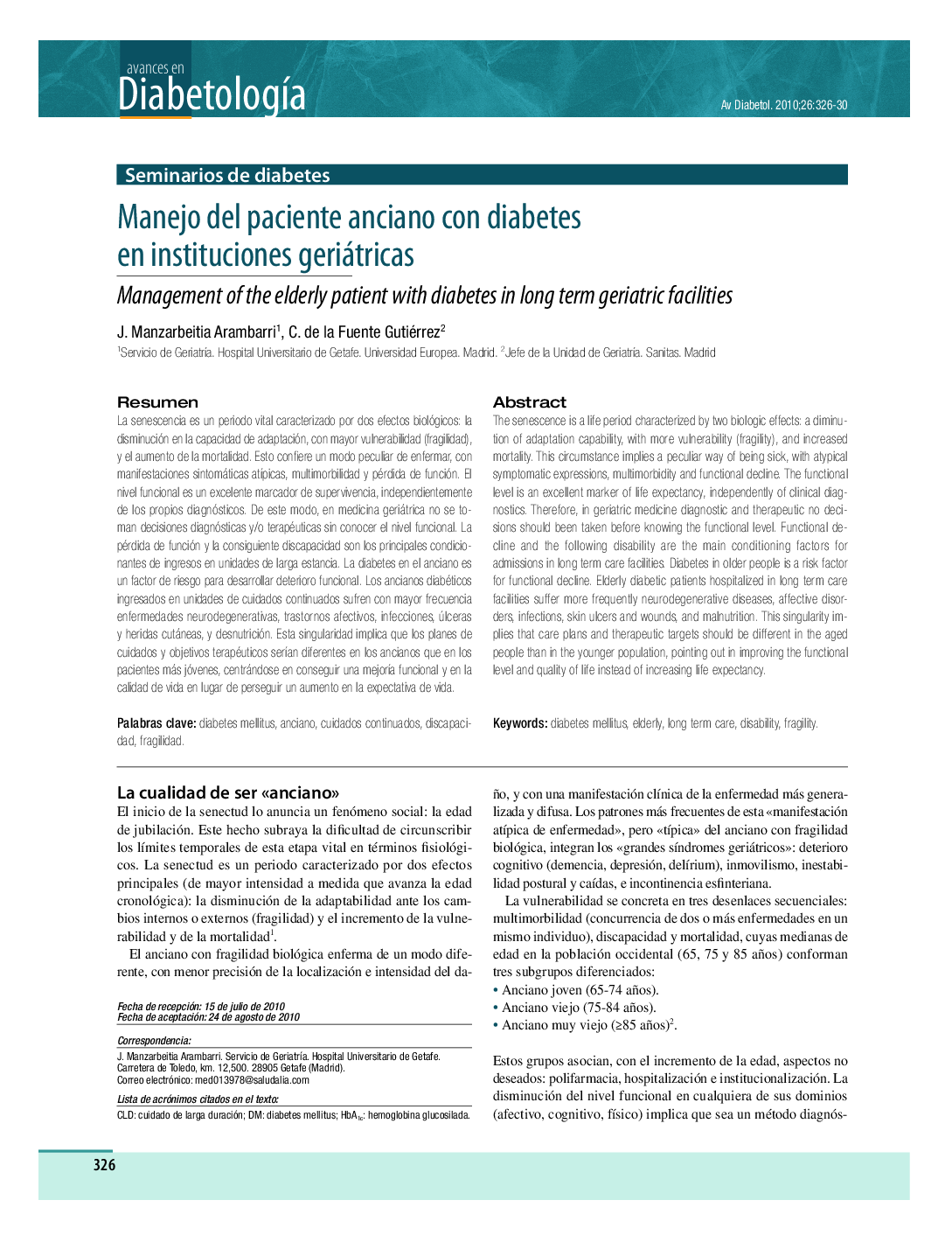| Article ID | Journal | Published Year | Pages | File Type |
|---|---|---|---|---|
| 3253850 | Avances en Diabetología | 2010 | 5 Pages |
Abstract
The senescence is a life period characterized by two biologic effects: a diminution of adaptation capability, with more vulnerability (fragility), and increased mortality. This circumstance implies a peculiar way of being sick, with atypical symptomatic expressions, multimorbidity and functional decline. The functional level is an excellent marker of life expectancy, independently of clinical diagnostics. Therefore, in geriatric medicine diagnostic and therapeutic no decisions should been taken before knowing the functional level. Functional decline and the following disability are the main conditioning factors for admissions in long term care facilities. Diabetes in older people is a risk factor for functional decline. Elderly diabetic patients hospitalized in long term care facilities suffer more frequently neurodegenerative diseases, affective disorders, infections, skin ulcers and wounds, and malnutrition. This singularity implies that care plans and therapeutic targets should be different in the aged people than in the younger population, pointing out in improving the functional level and quality of life instead of increasing life expectancy.
Related Topics
Health Sciences
Medicine and Dentistry
Endocrinology, Diabetes and Metabolism
Authors
J. Manzarbeitia Arambarri, C. de la Fuente Gutiérrez,
